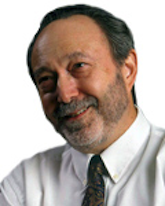Stephen W. Porges, PhD is Professor of Psychiatry and BioEnginneering and Director of the Brain-Body Center at the University of Illinois at Chicago. His work on the autonomic nervous system has led to a new understanding of mechanisms involved in behavioral regulation and social engagement behaviors. He is developing new biobehavioral assessment tools to monitor individual differences in physiological regulation of behavioral state.
His research has led to an innovative intervention, The Listening Project, designed to exercise the neural regulation of middle ear structures to reduce auditory hypersensitivities and to improve the ability to listen and to attend to human speech. Dr. Porges speaks throughout the world about his Polyvagal Theory and its applications to typical and clinical populations. He is the author of the 2011 book, The Polyvagal Theory: Neurophysiological Foundations of Emotions, Attachment, Communication, and Self-Regulation.
Discover these discount codes for you!: Angie’s List and 10% off on printer ink at 4inkjets and 10% off on Shoes and other apparel at ShoeBuy.com.
A psychology podcast by David Van Nuys, Ph.D.
Podcast: Play in new window | Download
Subscribe: Apple Podcasts | RSS

Just listen to the poly-vagal theories with Dr, Porges. Great!!!
Just finished listening to Porges and Siegel podcasts. I find them informative, Dave’s style of interview well paced. I’m delighted to have bumped into the website, though I’ve no idea where I started from. I have put the podcast website on my facebook page for reference to everyone on my page. Blessings, Thanks, Theresa
Interesting stuff, especially for a 1st year like myself. My ears pricked up in particular when discussing autistic symptoms, as my twin brother and I have to sleep with ear plugs to shut out noise, and are particularly sensitive to open mouthed eating, both visually and sonically. Lately I’ve found myself blocking out part of a tv screen with my hand when someone’s eating open-mouthed, or else I can’t concentrate, and blocking an ear at the cinema for the loud mouth chewers behind me. In real life interactions, especially disrespectful gum chewers, I either want to run from the room or punch the in the face (how’s that for a literal fight or flight response?), although thankfully I’ve managed to stop myself from doing either! 😉
Therefore, I’d love to be able to take part in some of the therapies that have mentioned!
Cheers,
John
I\’m a Feldenkrais(R) practitioner and someone once diagnosed with PTSD. Polyvagal theory fits in perfectly with what I do, and what I experience. Very validating. I\’ve worked successfully with people diagnosed with autism and ptsd.
The sound quality on the last 2 podcasts was horrible. Like the show but bad sound is really annoying.
Sorry to hear that. Which two episodes? What are the numbers? If they were the recordings at the Positive Psych conference, then I’m not surprised, since I was in the audience and recorded on my iPhone. Sorry best I could do there.
Dear Shrink (Dave),
Thanks for this whole site, a terrific resource. I come from the amateur group and have especially valued this interview with Stephen Porges. Now it seems the audio no longer plays correctly. At about 53 seconds the interview jumps to the second hour leaving out almost all of the content. I’m hoping this is a simple glitch. Would love it if the audio could be restored.
Thanks! — Roy
Dave,
My previous comment was probably mistaken. Perhaps the “jump” was an intentional ‘teaser’ included as part of the introduction. My apologies for any inconvenience
What a fantastic interview… as a clinician, practicing acupuncture, hypnotherapy and Somatic Experiencing, Dr. Porges Polyvagal Theory is so very important. Having this theory @ hand has made my clinical practice of acupuncture much more effective. Practicing in a traditional way, and then being able to contrast Oriental Medicine, abdominal diagnosis with the Polyvagal Theory has been given me new ways to treat the symptoms into the root of the patient as a whole. Bravo